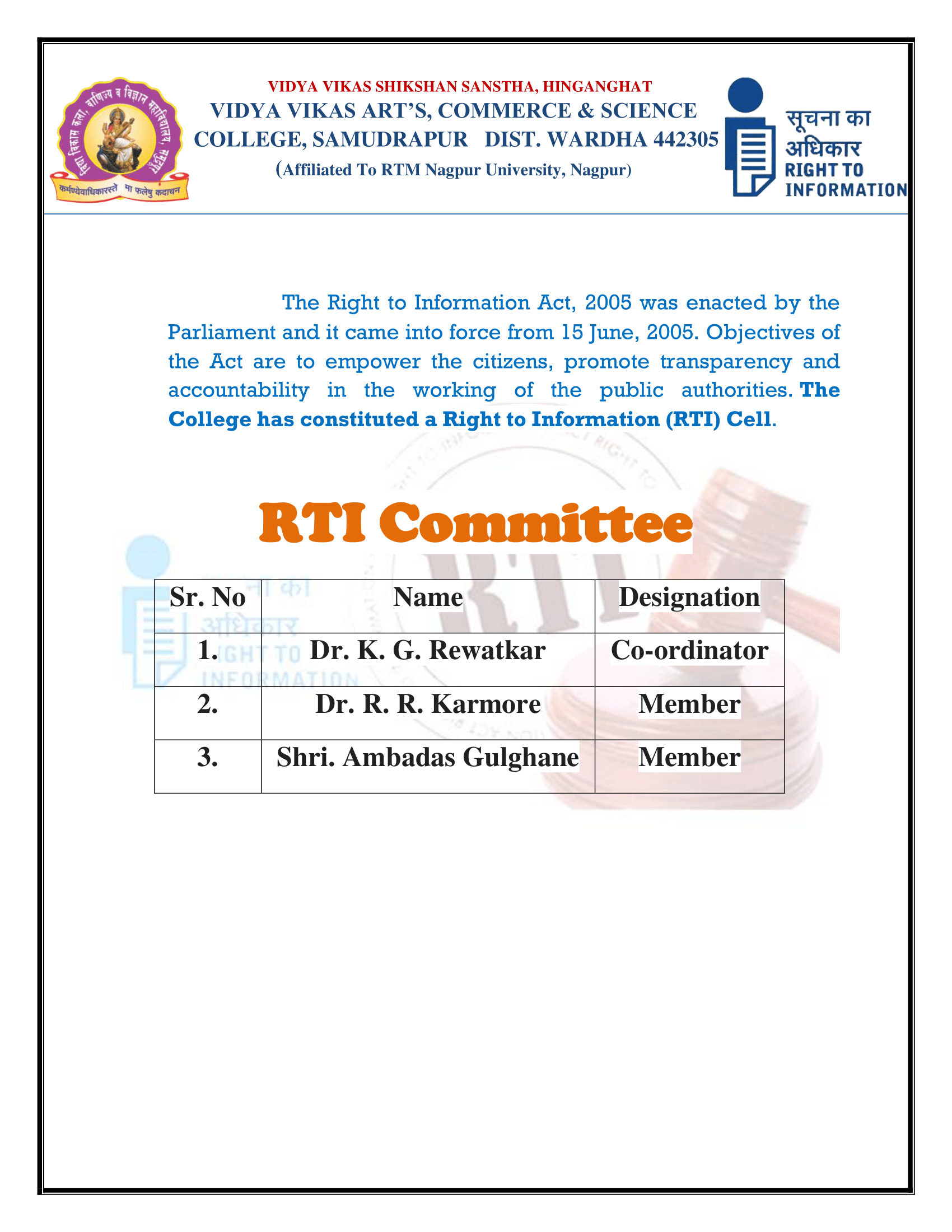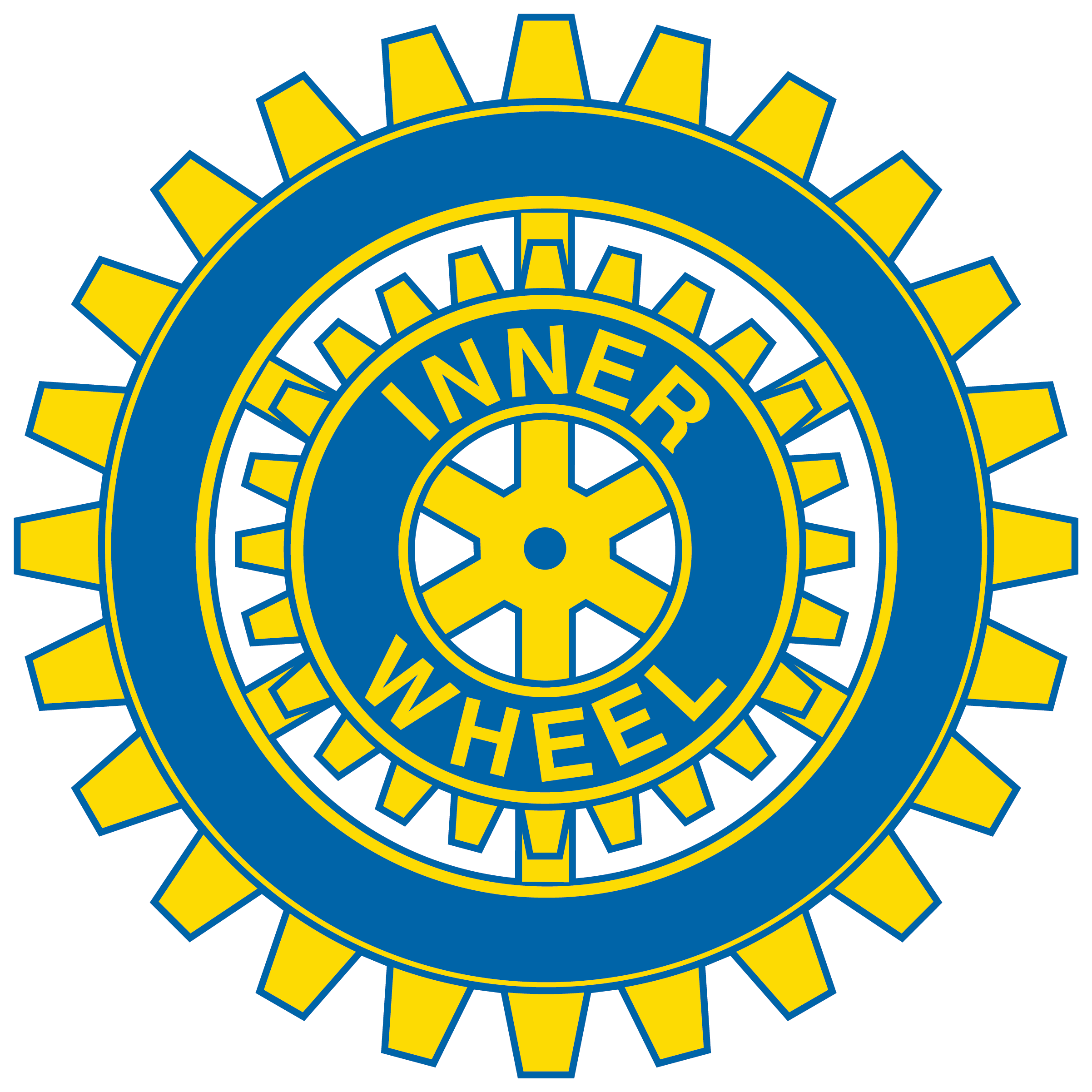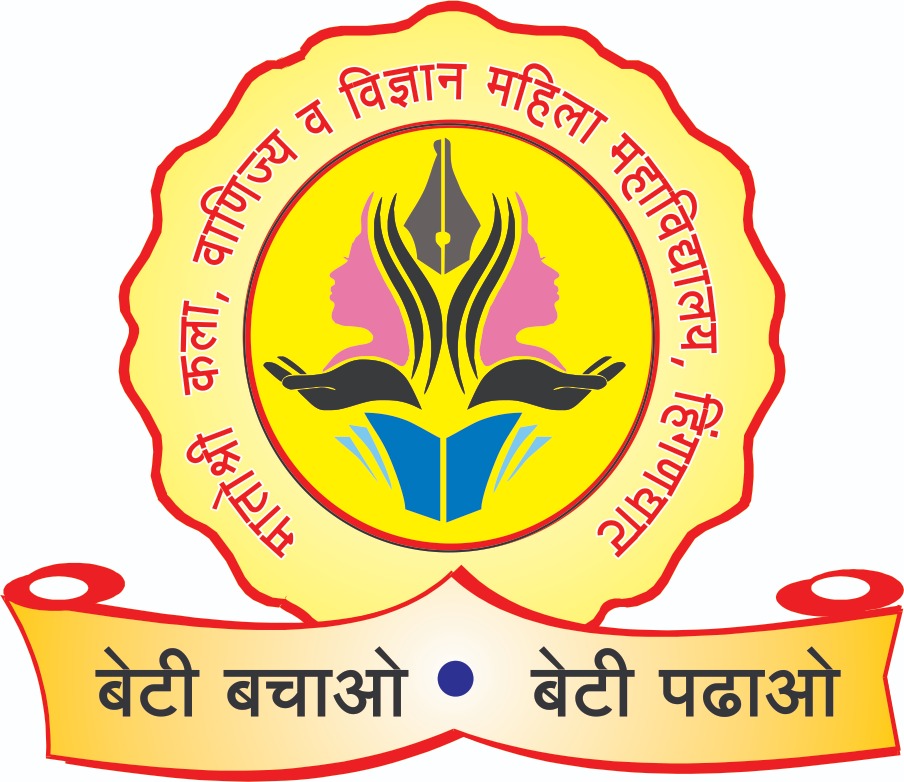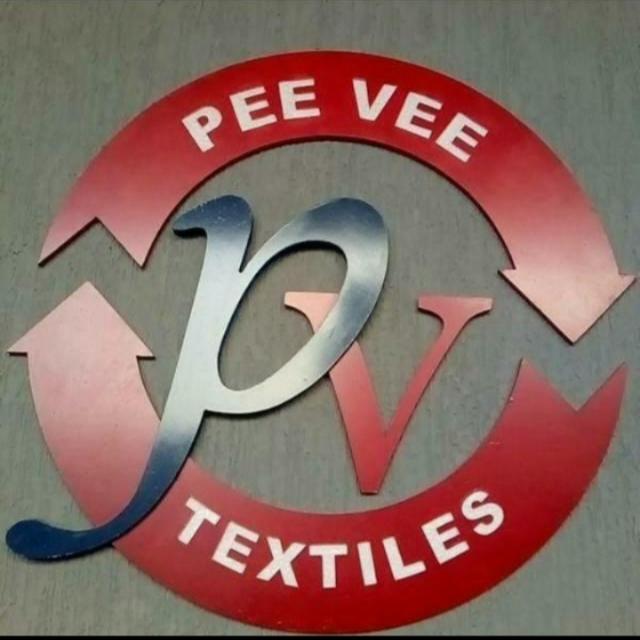The vision of the institution, Vidya Vikas Arts, Commerce and Science College is ‘An institution of international standards and to create a centre of academic excellence for students in the field of higher education proficient to stand in a globalised world’. To cultivate competence and efficiency along with character and integrity amongst the youth in the rural area, the institution makes die-hard efforts for the creation of a society that is not only progressive but also inclusive since its inception in 1989. The habitat, floral and faunal density and diversity, to the mark infrastructure, and sufficient residential facilities (Girls Hostel) for needy and poor girl students contribute to the sustenance of the institution in higher education
The institution’s vision and mission centre on uplifting and enhancing the capacities of rural kids and, by extension of the rural population. ‘Karmanya Vadhikaraste Mafaleshu Kadachan’ is the institution’s emblem. So, educating rural pupils with high-quality content contributes significantly to the development of young people in rural areas. As a result, the institution has worked tirelessly from its inception to ensure that as many people as possible in the institution’s home region have access to higher education. According to student enrolment statistics, 75% of graduate students are female out of which 90% come from economically disadvantaged backgrounds. As a result, the institution caters to the educational needs of those from disadvantaged backgrounds. The women’s restrooms at the campus have undergone extensive renovations. There is also a facility for providing clean drinking water. Since there are so many power outages, the institution has invested in a large electrical generator to help with backup power.
The institution offers a certificate course in “Vermicomposting” to rural residents, who are dependent on agriculture. As the students pursue both UG and PG degrees, they gain more practical expertise in agriculture, which helps them to address the employability issue. In rural regions, vermicomposting is key role. A variety of chemical and synthetic fertilizers, insecticides and weed killers have been overused in excess because of misinformation. By providing organic fertilizers to nearby residents, the institution has been running this operation for many years to help limit their consumption.
Though our institution is located in a rural area, students who have talent in a variety of professions were unable to find a place to showcase it. As a result, our institution has provided a platform with the intention of giving newcomers the best possibilities to begin their careers in music and singing. Vidarbha’s newest artists from throughout the state convened and performed for the first time. ‘SWARANJALI’ is a one-of-a-kind programme offered at our institution. Swaranjali is our institutional distinctiveness because such kind of activity does not take place all over Vidarbha. We have a Swaranjali celebration at our campus the day before our yearly cultural event.
The institution’s goal is to inspire students to pursue higher education and develop their skills. A rural and economically poor district in Maharashtra, the institution’s tireless efforts have led to the improvement of the surrounding environment. Post Graduate programmes in Arts (History and Social Science), Commerce (M. Com.) and Science (Chemistry in 2014-15, Botany and Mathematics in 2019-20, Zoology and Physics in 2021-22) began in the institution. As there were no PG institutions nearby, they had to attend PG institutions far away. The institution took this issue seriously and decided to provide PG courses to meet the students’ needs. This was not a simple task of undertaking for the institution due to the lack of PG labs, especially for science topics and lack of government funds. However, with the help of the executive management, the institution was able to build well-equipped science labs and launch PG programmes in five subjects sessions from 2014 to 2021 and a few more in the coming years.
Internal Compliant Committee
The institution has a Complaint Committee (ICC) that empowers female students and ensures their safety while attending the school. Additionally, the ICC offers legal training to students on a wide range of relevant legislation that they may encounter in the course of their daily lives.
The college is dedicated to shaping future citizens with graduate characteristics and employability. The NSS unit addresses the inherent social responsibility of the students through diverse activities that are centered on social issues, local needs, and issues of State and National relevance. With the help of the NSS, guest lectures, university-level events and Wi-Fi, we are able to fulfil our obligation.
Library Management System (LIB-Auto-10.0)
Integrated Library Management System (LIB-Auto-10.0) has been used by the institution’s well-developed library. The library has a good range of books for academic subjects as well as competitive exams, as well as subscriptions to well-known Marathi, Hindi, and English journals. The library also has 12 daily newspapers in different languages. Teachers and students can read different sections of the book while the reference section has access to electronic books, electronic journals and open source books online. The library is open almost 8 hours to visitors. There are 12681 books, including encyclopedias, religious texts, e-books in the library. In addition, the college is a member of the INFLIBNET centre’s N-List programme, which gives our students and teachers access to an unlimited number of electronic resources.
Physical Education Department
A well-equipped and student-friendly Physical Education Department has a large sports ground, indoor stadium and other facilities that allow students to participate in sporting activities. The institute provides a gym for the students’ physical fitness.
A Memorandum of Understanding
A memorandum of understanding (MOU) is a document that describes a formal agreement between two parties. It is not a legal agreement, but it does indicate the establishment of a transaction relationship that will continue and likely result in a legal agreement such as a contract
An MOU indicates that a legal contract will be forthcoming. This is more expeditious than other forms of documentation and is used both by corporations (usually in high-stakes business dealings such as mergers) and by international agencies or nations (such as during treaty negotiations).
The MOU is often the starting point for negotiations, and is used to sketch out the purpose and scope of the forthcoming deal and make sure all parties are on the same page.
When the parties have reached an understanding that is acceptable by each of them, the MOU can be used to document all of the most important stances for each party. Although not legally binding, the MOU is a formal document that puts in writing the willingness of all parties to expedite the deal and move the contract forward.
It is also used before or during the negotiation process to define a party’s initial position as a preliminary document that will be modified as the final deal is shaped.
Out of the 27 teachers, 14 hold Ph. D., while 4 are currently enrolled in doctoral programmes. 8 faculty members supervise doctoral students. Each department is supplied with an internet connection. ICT-enabled classrooms serve as a foundation for the teaching-learning process.
There are 27 full time teachers working in the Institute. Out of that 24 are Ph.D. holder and 14 are Ph.D. Supervisor. Our two faculties are awarded with 6 patents (each 3). In the research area more than 300 research papers are published by our faculties in various respected National and International Journals (like. Scopus, WOS, UCG-Care List) with good impact factor. There is a one sanctioned project submit by our faculty. 7 faculties are Members of Board of Studies and one of them is Chairman of Board of studies.
The Right to Information Act, 2005 was enacted by the Parliament and it came into force from 15 June, 2005. Objectives of the Act are to empower the citizens, promote transparency and accountability in the working of the public authorities. The College has constituted a Right to Information (RTI) Cell








